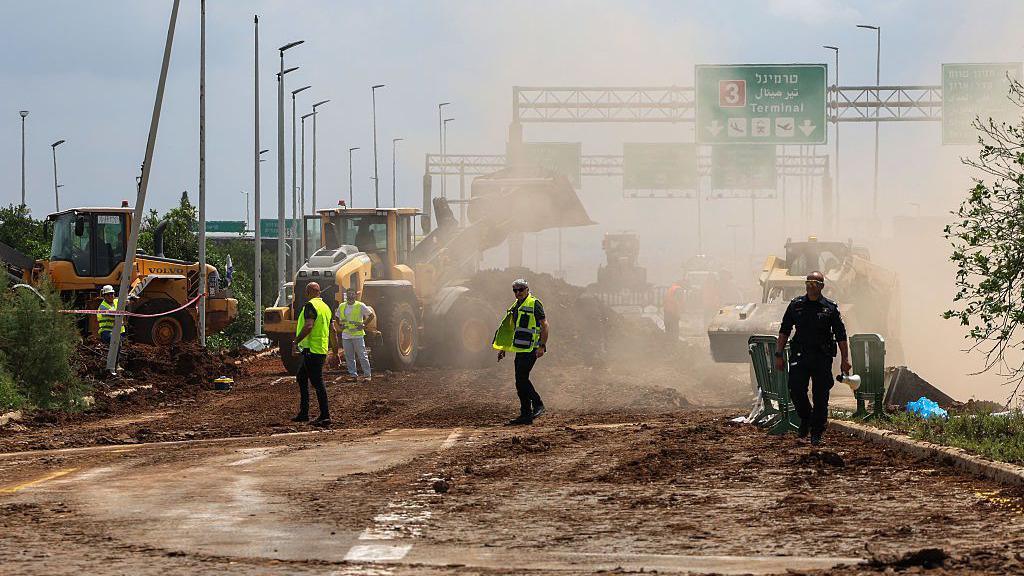Yemen’s Houthi rebels launched a ballistic missile on Sunday that struck near Israel’s Ben Gurion International Airport, disrupting flights and injuring four people.
The attack occurred just hours before Israel’s cabinet convened to vote on expanding its ground operations in Gaza, signaling a potential escalation of regional tensions.
The missile, identified by the Houthis as a hypersonic weapon dubbed "Palestine-2," landed near an airport access road, leaving a large crater and halting air, road, and rail transport in the vicinity.
While Ben Gurion Airport resumed operations within 30 minutes, the strike marked a rare instance of Israel’s air defense systems failing to intercept an incoming projectile, raising concerns about new vulnerabilities.
The Houthis, an Iran-backed militant group based in Yemen, claimed responsibility for the attack.
They said the strike was in retaliation for Israel’s ongoing military campaign in Gaza, which began in October 2023 following Hamas-led attacks.
Since then, the Houthis have launched multiple long-range missiles and drones toward Israel in a show of solidarity with Palestinians.
In response, Israeli Prime Minister Benjamin Netanyahu vowed to retaliate, while Defense Minister Israel Katz described the attack as a serious escalation that would not go unanswered.
The U.S., which has previously targeted Houthi positions in Yemen to curb their missile capabilities, condemned the strike and reaffirmed its commitment to Israel’s security.
The missile’s launch came at a highly sensitive moment, with Israel’s security cabinet meeting to approve a wider offensive in Gaza.
As the conflict deepens, the involvement of external actors like the Houthis underscores the growing risk of a broader regional war.
Analysts noted that the use of a missile resembling Iranian designs highlights Tehran’s ongoing influence in proxy conflicts across the Middle East.
Though Houthi claims of Mach 16 speeds and 2,000 km range remain unverified, the threat posed by such weapons is being taken seriously by Israeli and international defense communities.
Sunday’s attack adds a new dimension to the Gaza conflict, complicating efforts to de-escalate tensions and drawing further attention to the interconnected web of hostilities stretching from Yemen to the Levant.
